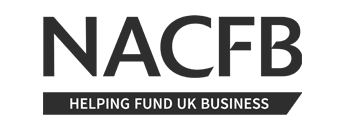In a perfect world, you submit your invoice, then wait for the money to roll in on time. But what happens if a client hasn’t paid and their deadline is long overdue?
According to recent figures, £24.4 billion was owed to UK SMEs in late payments in 2019, an increase of over £10 billion from the previous year. This has a significant impact on businesses, but there are a few things you can do to help secure payment.
Read on to find out what your options are when it comes to late-paying clients.
How long should I wait before I start to chase up?
Generally, many people send a follow-up email a few days after the due date has passed. You send an invoice for a reason, and that’s to get paid on time. It could be an honest mistake, and we all tend to forget things from time to time, so sending a follow-up email is a polite prompt and reminds the client that you need to receive payment.
What do I do if they ignore my prompt email?
Once the payment due date has expired, there are a couple of options. Either send an email stating that they are over their payment deadline, or make a call to the relevant people in their accounts department. Maybe the person working in accounts is new and hasn’t got round to you yet?
Maybe you don’t have all the relevant information on your invoice for them to settle properly. Before going in guns blazing, make sure your invoice is getting to the right person. And if it is, open up communication with that person, ask if there’s a reason that you haven’t received payment yet and when you can expect full payment.
What if I’m still being misled on the payment of my invoice?
This is when you can start to get a little more stern. Since the introduction of the late payments act, you’re now entitled to claim late payment interest and compensation for debt recovery costs.
Even in the absence of a contract, you are entitled to claim 30 days after the goods or services have been delivered. Arm yourself with information and know your rights, this usually lets your client know that you value your work and you know you need to be paid for it.
Keep copies of everything
You’ll want to send a letter stating that if the client doesn’t pay within five days (this is a substantial amount of time), you could begin charging them for late payment fees, interest and compensation per invoice. Save your emails before this point and any copies of invoices as you’ll need everything if it gets to a point where you need to take legal action.
Get outside help – work with an invoice finance partner
If waiting for your invoices to be paid is having an impact on your business and you’re unable to take on any more work until your invoices are settled, you could use Invoice Finance. It works by selling your invoice to the lender at a discounted rate.
You then get up to 95% advance of the invoice value upfront, meaning your business can stay afloat. You invoice the customer as usual and send the invoice details to the lender. The advance is paid out to you almost immediately and then depending on which type of invoice finance you agree to use, chasing payments will either be handled by you or your lender.
The final instalment is then paid to you when the client has paid their invoice (minus any fees or service charges). This is the perfect solution for a business who needs healthy cash flow and can’t hang around waiting for clients to pay.
You could also look at a full-ledger invoice facility. This is where the lender acts on your behalf, allowing you quick access to the cash in your invoices and removing the burden of chasing payments.
It’s easy to be taken advantage of if you’re a small business or self-employed, but stick to your guns, arm yourself with all the information you need to make sure you get what’s owed to you. It’s not cheeky or rude to ask for payment; it’s business, it’s how you grow and move forward with your work and knowing you have options to deal with late-paying clients makes your life a whole lot easier.
What if my customer is refusing to pay or can’t pay my invoice?
If you suspect things have gone too far with your customer, you could start thinking about a commercial debt collection agency to help you.
There is a certain amount of ‘fear-factor’ around employing the services of a debt collection agency due to overdue invoices and late-paying customers. If you work with a reputable company, you will find that they act with the utmost professionalism and courtesy with both your client contact and said internal accounts department.
It is in everyone’s interest to have a positive outcome. If you do look towards this route, make sure the company is regulated by the FCA, has ICO Data Protection and is a member of the CSA (Credit Services Association).




